
At 9:20 am on 15 February 2013, the people of the industrial town Chelyabinsk in Russia were starting their mornings when a light streaked across the sky. Bright enough to outshine the Sun, people ran to windows to see the trail it left in the sky. A few minutes later, a boom swept through the town, shattering windows, bringing down walls, and knocking people to the ground.
That shocking sound was a meteor exploding overhead, but it wasn't just the noise. Fragments of rock were blasted across the landscape by the blast, falling down on the snow like rain.
Videos from dashcams and CCTV cameras soon appeared on news channels around the world, sending meteorite hunters and researchers flocking to the town. Among those who arrived after the airblast was a young Ph.D. student just getting started in her journalistic career - me.
I'd been asked to present a documentary about the event with the rather dramatic title of Meteor Strike! Fireball from Space, which was how a film crew and I found ourselves knee-deep in snow during the Russian winter, three weeks following the explosion. However, it was the very snow-freezing my toes that made Chelyabinsk the perfect place for a meteorite hunt. When the rocks fell onto untouched snow, the heat they picked up from their journey through the atmosphere melted a clear, obvious hole. Find a hole, dig to the bottom and there's a good chance you'll find a meteorite.
The area had been picked over by the time we arrived, but our director did manage to find a 1cm wide pebble. It was pure black, covered in a fusion crust created by the heat of entry melting the surface. There's something magical about holding a freshly found meteorite in your hand. This was a fragment left over from the birth of the Solar System.
It had been in space for billions of years until just a few weeks ago. And by this point, there was even a pretty good idea of where it had been.
This story is from the {{IssueName}} edition of {{MagazineName}}.
Start your 7-day Magzter GOLD free trial to access thousands of curated premium stories, and 9,000+ magazines and newspapers.
Already a subscriber ? Sign In
This story is from the {{IssueName}} edition of {{MagazineName}}.
Start your 7-day Magzter GOLD free trial to access thousands of curated premium stories, and 9,000+ magazines and newspapers.
Already a subscriber? Sign In

Could We Find Aliens by Looking for Their Solar Panels?- Designed to reflect ultraviolet and infrared, the panels have a unique fingerprint
Researchers searching for life beyond Earth spend a lot of time thinking about what telltale signs might be detectable astronomically. Forms of unambiguous evidence for the presence of life on another world are known as biosignatures. By extension, techno signatures are indicators of activity by intelligent, civilisation-building life.

Antimatter- In our continuing series, Govert Schilling looks at antimatter, the strange counterpart to most of the matter filling our Universe
Particles and corresponding antiparticles are very much alike, except they have opposite electrical charges. For instance, the antiparticle of the electron - known as the positron - has the same tiny mass, but while electrons carry a negative electrical charge, positrons are positively charged.
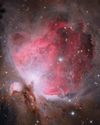
Where Have All The Milky Way's Early Stars Gone?- Our Galaxy has a curious lack of pristine stars
The Big Bang produced a Universe filled almost exclusively with hydrogen and helium; all other elements - what astronomers call metals - were produced by stars, supernovae and everything that happens later. So if you can pick out a pristine star with no metals polluting it from among the billions in the Milky Way, then you are likely to have a star dating from our Galaxy's earliest days.

Inside The Sky At Night - Two years ago, exoplanet scientist Hannah Wakeford received some of the first data from the JWST
Two years ago, exoplanet scientist Hannah Wakeford received some of the first data from the JWST. In July's Sky at Night, we discovered what she's learned since then.
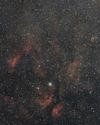
How to stack DSLR data in Siril
Easily combine multiple frames to boost detailin your astro photos
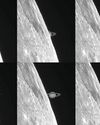
Lunar occultation of Saturn
You'll need to strike a balance on 21 August to capture the Moon covering the ringed planet

How to plot a variable star light curve
A rewarding project to chart stars that change brightness
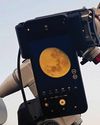
Smartphone photography with a telescope
Mary Mcintyre explains how to get impressive night-sky images using your phone
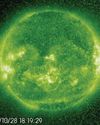
Once-a-century solar storm is overdue
If a Carrington Event struck today it would be catastrophic, says Minna Palmroth
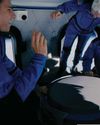
The new era of human spaceflight
There's been a step-change in crewed space missions since the dawn of the 21st century. Ben Evans charts its course and looks ahead to future horizons